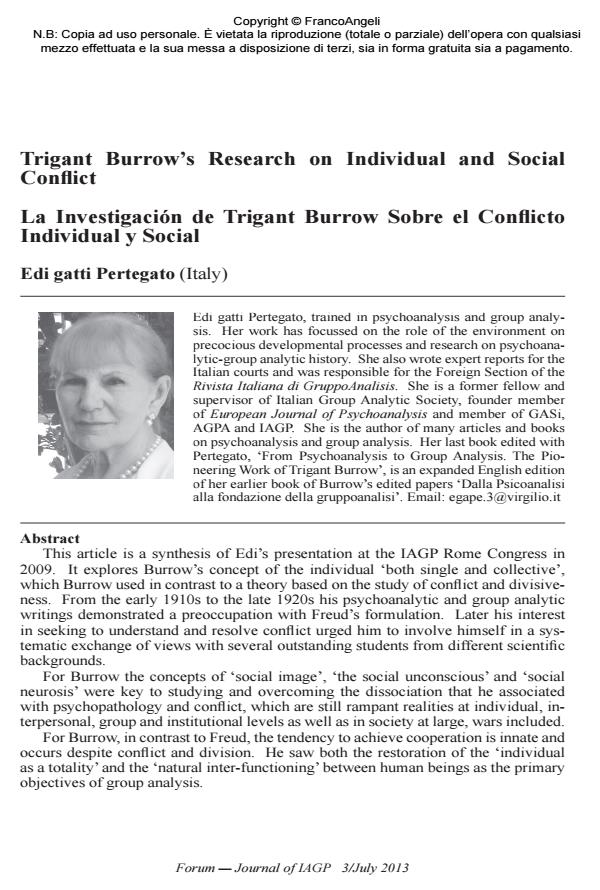Trigant Burrow’s Research on Individual and Social Conflict
Titolo Rivista FORUM
Autori/Curatori Pertegato Edi Gatti
Anno di pubblicazione 2014 Fascicolo 2013/6
Lingua Inglese Numero pagine 10 P. 133-142 Dimensione file 791 KB
DOI 10.3280/FORU2013-006013
Il DOI è il codice a barre della proprietà intellettuale: per saperne di più
clicca qui
Qui sotto puoi vedere in anteprima la prima pagina di questo articolo.
Se questo articolo ti interessa, lo puoi acquistare (e scaricare in formato pdf) seguendo le facili indicazioni per acquistare il download credit. Acquista Download Credits per scaricare questo Articolo in formato PDF

FrancoAngeli è membro della Publishers International Linking Association, Inc (PILA), associazione indipendente e non profit per facilitare (attraverso i servizi tecnologici implementati da CrossRef.org) l’accesso degli studiosi ai contenuti digitali nelle pubblicazioni professionali e scientifiche.
This article is a synthesis of Edi’s presentation at the IAGP Rome Congress in 2009. It explores Burrow’s concept of the individual ‘both single and collective’, which Burrow used in contrast to a theory based on the study of conflict and divisiveness. From the early 1910s to the late 1920s his psychoanalytic and group analytic writings demonstrated a preoccupation with Freud’s formulation. Later his interest in seeking to understand and resolve conflict urged him to involve himself in a systematic exchange of views with several outstanding students from different scientific backgrounds. For Burrow the concepts of ‘social image’, ‘the social unconscious’ and ‘social neurosis’ were key to studying and overcoming the dissociation that he associated with psychopathology and conflict, which are still rampant realities at individual, interpersonal, group and institutional levels as well as in society at large, wars included. For Burrow, in contrast to Freud, the tendency to achieve cooperation is innate and occurs despite conflict and division. He saw both the restoration of the ‘individual as a totality’ and the ‘natural inter-functioning’ between human beings as the primary objectives of group analysis.
Pertegato Edi Gatti, Trigant Burrow’s Research on Individual and Social Conflict in "FORUM" 6/2013, pp 133-142, DOI: 10.3280/FORU2013-006013